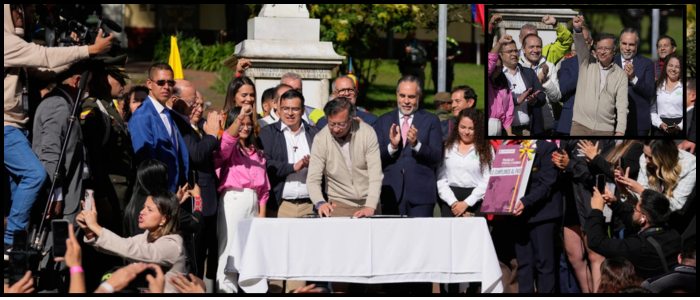Petro signed the bill at a historic home that belonged to Simón Bolívar, adding a post on social media saying that he had enacted the reform "before Bolívar and the working people." Pointing to the 2026 elections, Petro insisted that it was important to vote in a Government that would back the law.
Outrage and economic worries
The law was applauded by trade unions and supporters of Petro, but it drew fierce opposition from business leaders and critics who said it could discourage employment and weigh on small businesses. Opponents say the higher overtime pay and reduced working hours will add costs to many companies that will drive them toward layoffs or the informal economy. Critics also argue that more than half of the country's workforce is already informal and will not be a direct beneficiary of the changes.
Compliance fears persist. Responding to this, Petro advised those who chose not to apply the law that would "not be intelligent." His administration has pledged to introduce more legislation to aid small businesses, but the proposal has not been fleshed out.
A Tepid Triumph in a Tumultuous Nation
Petro was forced to refine and dial down parts of the initial proposal in order to gain passage. The final version also left out measures such as extended paternity leave, menstrual leave for women and some collective bargaining rights for unions.
The passing of the labour law comes in Colombia at a time of flux, with bombing attacks in the northeast and the recent assassination attempt on opposition senator Miguel Uribe. Uribe, a conservative candidate in next year's presidential election, is in intensive care.
Nevertheless, labour reform remains a major political victory for Petro, part of his larger effort to move power toward Colombia's working class.
Politics

Colombia Passes Labour Reform After Two Failed Attempts

Colombian President Gustavo Petro on Wednesday signed a much-debated labour reform into law, a major gain in his bid to reduce inequality. Petro succeeded in passing the law after two previous attempts in Congress, albeit with a great deal of concessions. The bill enhances protections for workers, increases overtime pay, restricts the use of short-term contracts and extends various benefits to gig workers, including food delivery drivers. It also guarantees that student interns will be given formal contracts that include benefits like paid vacation and severance.















